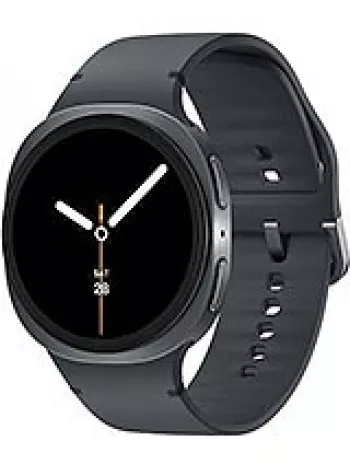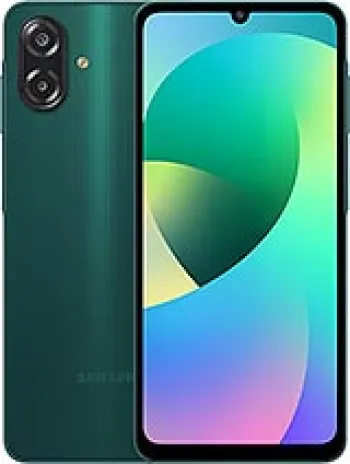
Introduction to Samsung D520
The Samsung D520, launched in 2006, represents a noteworthy example of mobile phone technology from the early 2000s. Although no longer in production, this feature phone offered consumers many functionalities that reflected the standards and technological capabilities of its time. The phone's sleek design, basic capabilities, and user-friendly features made it popular among users who valued simplicity and reliability in communication devices.
Design and Build
The Samsung D520 was engineered with a focus on compactness and style. With dimensions of 101 x 46 x 15.9 mm and a weight of 94 grams, it fits comfortably into pockets and hands, offering a seamless portability. The sleek form was complemented by a choice of colors, including black and silver, which added a touch of elegance to the device. It utilized a Mini-SIM card format, common during that era.
Display
The phone featured a 1.9-inch TFT display with a resolution of 176 x 220 pixels. This display size accounted for approximately 24.5% of the device's screen-to-body ratio. While modest by today's standards, the display offered 256K colors, delivering a vibrant screen for its time that allowed users to enjoy icons, themes, and images with visual clarity.
Camera Capabilities
Equipped with a single 1.3 MP camera, the Samsung D520 was capable of capturing basic photos suitable for casual photography. The addition of an LED flash enhanced its functionality, allowing for clearer pictures in low-light situations. The device supported video recording at CIF quality, enabling users to capture and preserve short video clips.
Audio Features
The Samsung D520 provided a satisfactory audio experience with its stereo loudspeakers. Capable of playing downloadable polyphonic and MP3 ringtones, the phone catered to users who appreciated music and personalization options. However, it did not include a 3.5mm headphone jack, which was a limitation for those who preferred using wired headsets.
Memory and Storage
In terms of storage, the Samsung D520 offered 80MB of internal memory. While not expandable via a card slot, this capacity allowed for the storage of essential applications, messages, and multimedia. The device supported a phonebook with storage for up to 1000 entries and included photocall functionality. Call record options were also present, allowing users to keep track of 20 dialed, 20 received, and 20 missed calls.
Connectivity
For wireless communication, the device featured Bluetooth 1.2 with A2DP. This enabled users to connect to compatible devices such as wireless headsets for hands-free operations. However, it did not include WLAN or radio capabilities, which were limitations for users seeking greater connectivity options. The phone had a proprietary USB port for wired connections.
Network Support
Samsung D520 operated on GSM technology, supporting 2G bands on frequencies of 900, 1800, and 1900 MHz. The GPRS class 10 capability offered basic internet access for users, enabling them to browse the web through the WAP 2.0/xHTML browser. However, the absence of EDGE technology limited higher speed data access.
Battery Performance
The device housed a removable 800mAh Li-Ion battery, providing a talk time of up to 3 hours and a standby time of up to 285 hours. These features made it reliable for day-to-day usage, ensuring users could communicate without frequent charging. The removable nature of the battery also offered users the convenience of replacing the battery independently, extending the phone's usability.
Software and Functionality
Operating as a feature phone, the Samsung D520 included basic software for communication and entertainment. It supported SMS, EMS, MMS, and Email, covering the primary text and multimedia messaging options. Moreover, Java support (MIDP 2.0) allowed users to download and enjoy additional applications and games, enhancing the phone's utility. The device came pre-loaded with popular games such as BobbyCarrot, AirShip Racing, ArchAngel, and FreeKick, providing entertainment on-the-go.
Conclusion
Overall, the Samsung D520 was a device that catered to the basic needs of early mobile phone users. Its thoughtful design, straightforward functionality, and essential connectivity options made it a suitable choice for individuals looking for a reliable communication tool. Although discontinued, the D520 remains a significant representation of early 21st-century mobile technology developments.
Key Features of Samsung D520
- Compact Design: Dimensions of 101 x 46 x 15.9 mm and a weight of 94 g makes it lightweight and portable.
- TFT Display: 1.9 inches screen with 256K colors providing clear visuals.
- 1.3 MP Camera: Equipped with LED flash for better photo quality.
- Internal Storage: Offers 80MB of internal memory for storing contacts and media.
- Bluetooth 1.2, A2DP: Wireless connectivity to compatible devices.
- Loudspeaker: Includes stereo speakers for audio output.
- Battery Life: Removable Li-Ion 800 mAh battery with up to 285 hours standby and 3 hours talk time.
- Multiple Messaging Options: Supports SMS, EMS, MMS, and Email.
- Games: Pre-installed games like BobbyCarrot and downloadable options available.
Disadvantages of Samsung D520
- Does not support EDGE technology for faster data speeds.
- Lacks a memory card slot for expandable storage options.
- No selfie camera is available.
- Does not have WLAN (Wi-Fi) capability.
- Missing GPS (Positioning) functionality.
- Does not include a built-in FM radio feature.
- Utilizes a proprietary USB connection rather than standard options.
- Does not have a 3.5mm headphone jack, limiting audio accessory compatibility.
- Limited internal storage of only 80MB.

View Also
More Phones
All Rights Reserved +14266 Phones © Mobilawy 2025

























